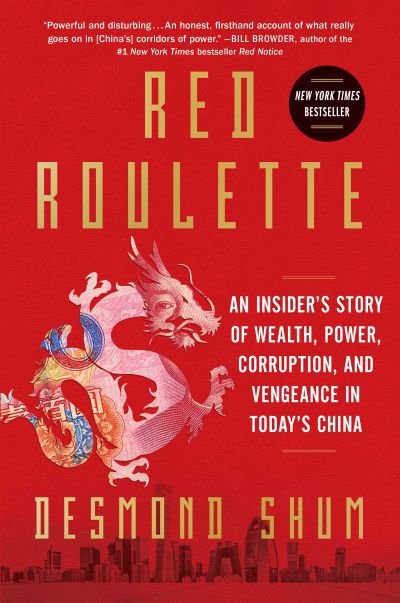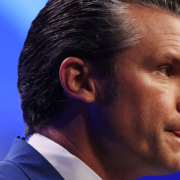From the bookshelf: ‘Red roulette’

A week before Red roulette was due to be published, in September 2021, its author Desmond Shum received two phone calls from his ex-wife Whitney Duan, who had been detained by Chinese authorities and hadn’t been heard from in four years. Duan told Shum that she had been temporarily released and might be reincarcerated at any moment, and asked him to cancel publication. She reminded him of an old Chinese warning: ‘No good comes to those who oppose the state.’ Having no confidence that Duan would be freed, Shum went ahead and published.
Shum’s book is a riveting personal account of the rise and occasional fall of China’s super-rich. However, it is also much more: it offers a detailed case study of the nexus between money and politics at the very top of China’s power structure. Shum wrote the book to set the record straight for his son, but decided that the story should be made public.
The book’s cast reads like a who’s who of China’s red aristocracy, including the families of retired Chinese Communist Party general secretary Jiang Zemin, retired premier Wen Jiabao, and a raft of other senior officials and their relatives. As Shum describes it, at that level most deal-making is based on mutual understanding, relying on interlocutors, without written records or contracts. Deals are wrapped in an intricate web of holdings to conceal the identity of the real owners.
From a business perspective, Shum and Duan were the ideal couple. He came from a middle-income background, was educated in Hong Kong and the US, and cut his teeth investing in China in the go-go 1990s. Duan’s roots were more modest, and she quickly realised that to get ahead she had to have the right connections, at the highest possible level.
Following extensive networking, Duan managed to become the ‘trusted friend’ of Zhang Beili or ‘Auntie Zhang’, the wife of premier Wen, whom she fronted for in several public listings and other deals. They were close, but ultimately, according to Shum, like ‘the fish that clean the teeth of crocodiles’.
Expanding her network, Duan also formed personal relationships with Wang Qishan, then a vice premier and currently vice president, and Sun Zhengcai, an ambitious young politburo member and until recently a contender to succeed Xi Jinping.
While things were going well, the couple led a charmed life, frequently accompanying Auntie Zhang on trips abroad. Jetting to France with the chief executive of construction giant Evergrande, the entourage ran up a wine bill of US$100,000 at a single sitting. Ironically, in October the heavily indebted Evergrande had to sell its corporate jets to stave off financial collapse.
Duan’s close relationship with key officials gave her access to inside information about party power struggles, including how Xi managed to eliminate adversaries and sideline potential successors. Shum’s most serious allegations are cautiously worded, presumably on the advice of the publisher’s lawyers.
Crunch time came in October 2012, when The New York Times published a front-page article on the hidden wealth of Wen’s family. Auntie Zhang had made the mistake of placing shareholdings in her mother’s name, which made them easy to trace. The article identified Duan as the family fixer, and inevitably relations cooled.
The revelations were made just weeks before the CCP congress that would confirm Xi as its new leader, and there was speculation that the information was leaked by supporters of Xi’s arch-rival Bo Xilai in retaliation for Wen’s supporting his ouster earlier in the year.
Sensing that all was not right, Shum eventually left China, while Duan continued to work on a luxury hotel project in Beijing. In October 2017, Sun, who had risen to party secretary of Bo’s former bailiwick, Chongqing, was detained. The charge was corruption, but there was speculation that he was being penalised for not dismantling Bo’s support network. A few weeks later, Duan and several of her assistants disappeared.
Xi’s decade-long anti-corruption campaign has snared up to 200,000 officials and businesspeople, including many of his competitors and enemies.
Chinese authorities are casting an increasingly wide net. In 2015, five Hong Kong booksellers disappeared, including one who was apparently abducted while travelling in Thailand, and later showed up in detention in China, charged with trafficking banned books. In 2018, somewhat surprisingly, Interpol’s Chinese president, Meng Hongwei, was detained while visiting China and charged with bribery. And most recently there is the case of Peng Shuai, the international tennis star.
In China, having the right connections has long been the best way to get ahead. Shum provides a stark reminder that knowing too much is also the quickest way to disappear into the country’s detention system.

